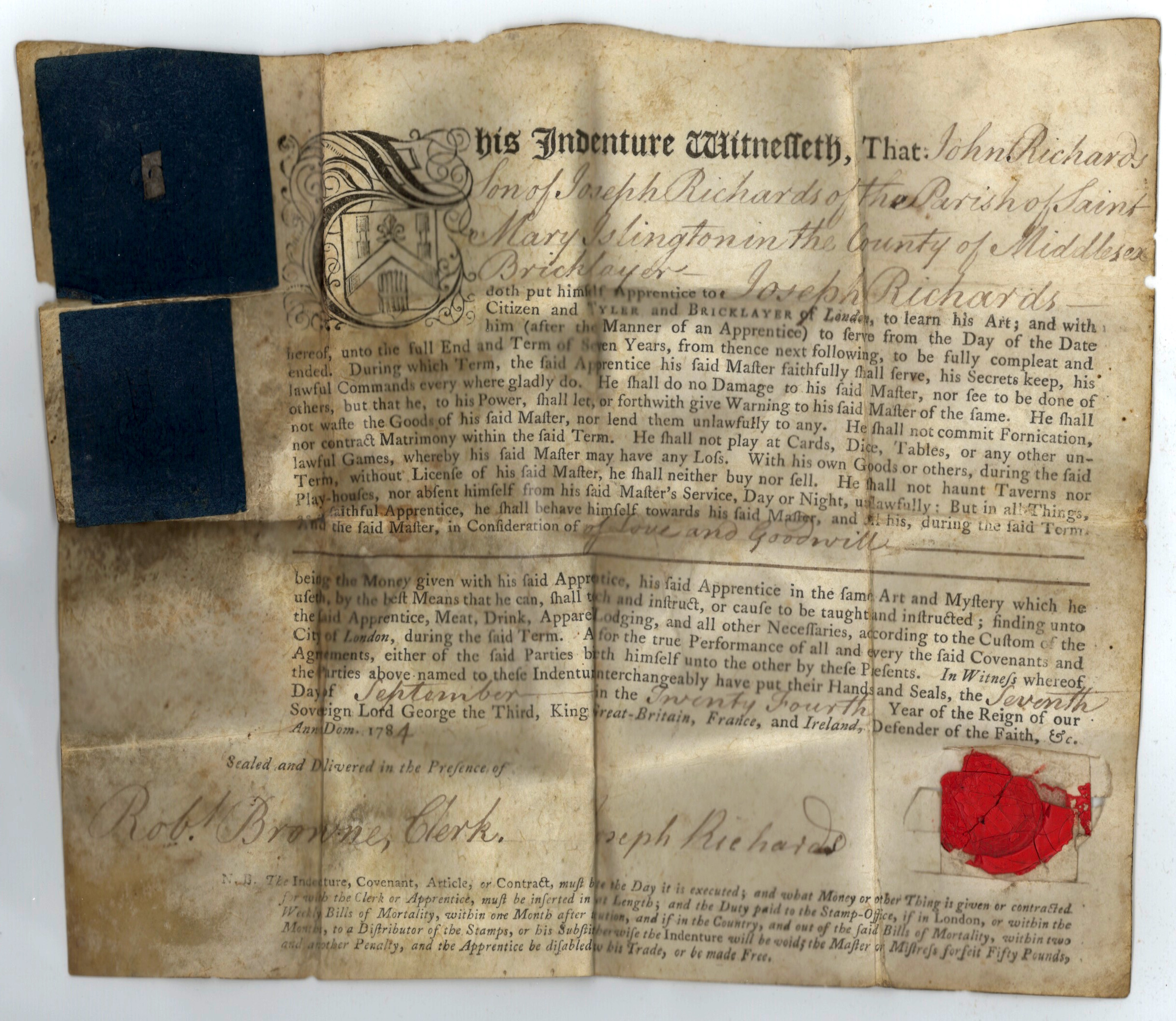This document, nearly 250 years old, is the “indenture” of John Richards, the 3rd-great-grandfather of the Lardner sisters. It is on parchment, rather than paper (accounting for its preservation). Unfortunately, it has been tightly folded up for who-knows-how-long and some words are hidden inside creases that haven’t relaxed yet. As you can see, it’s a pre-printed form and is notarized at the bottom left by a clerk. At bottom right is a wax seal. At top left are two pasted-on pieces of embossed blue paper—probably tax stamps. There is another stamp on the back side. The tax stamps and the wax seal show signs of being cut and woven onto the document. Perhaps this was a method of preventing removal and reuse.
The word “indenture” means something different today, but historically, it means a contract that provides something of value in return for a person’s labor. For example, about half of the white immigrants to the American colonies in the 17th and 18th centuries were indentured. They were required to work for some period of time, often as servants, to repay the person who paid the price of their voyage to the New World. Slavery in North American originated as a perversion of indenture, as owners successfully ignored the end of the term of indenture.
Indentured servants were forbidden to marry without permission and were subject to corporal punishment as deemed appropriate by the owner of the indenture. Female servants had their terms lengthened if they became pregnant. An indenture (the contract, not the person) could be sold to another owner. The term of the indenture would be legally enforced by the court and could be lengthened as punishment if the servant attempted to run away.
In the case of John Richards, the indenture is an apprenticeship. In return for learning the crafts of tiling and bricklaying, John agrees to work for the owner for a term of seven years. He agrees not to fornicate, marry, gamble, sell his own works, “haunt Taverns and Play-houses”, nor run away. In addition to instruction, the master agrees to provide “Meat, Drink, Apparel, Lodging and Other Necessaries.”
The agreement is dated on the “Seventh Day of September in the Twenty Fourth Year of the Reign of our Sovereign Lord George the Third, King of Great Britain, France, and Ireland, Defender of the Faith, etc., Anno Dom. 1784.”
